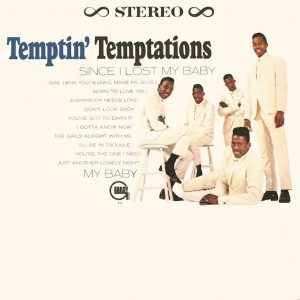“Nobody embraced Christmas as my father did,” said Nancy Sinatra of Frank, a singer who remains indelibly associated with the holiday season.
One of Frank Sinatra’s first Christmas songs was a version of the Victorian classic “Jingle Bells,” which he first recorded in 1948, merrily singing the famous lines “Jingle bells, jingle bells, jingle all the way/Oh, what fun it is to ride in a one-horse open sleigh” on a hot August day. That original version featured the sophisticated arrangements of the late, great Axel Stordahl, and is still played around Christmas trees today.
A controversial past
At the time, “Jingle Bells,” written by James Lord Pierpont, was considered to be a festive standard. But it started out in 1857 as a song called “One Horse Open Sleigh,” a slightly racy romance song about an unchaperoned ride. It was first performed, in blackface, by Johnny Pell at Ordway minstrel hall in Massachusetts. The song’s current title only began to take hold two years later, when Pierpoint changed the name and copyrighted it as “Jingle Bells,” and it was sung at Thanksgiving services. The main line was inspired by the noise of jingle bells on the horses’ harnesses, which were used to try to help avoid collisions in the snow in the mid-19th century. (The song was originally about a crash.)
Former church organist Pierpont was a controversial, disreputable figure. Shortly before writing the song, he had become a widower. He abandoned his two children in Boston to move to Savannah, Georgia, where he fathered several more children with a second wife. He later joined the 1st Georgia Cavalry in the Civil War, penning songs in support of Confederacy soldiers fighting to defend slavery.
Though “Jingle Bells” became a Yuletide staple, there was no mention of Christmas in the original lyrics. Indeed, ardent churchgoers considered some of the words, with lesser-known verses that described attracting pretty girls with a fast sleigh, as too risqué to be sung in church. Yes, “dashing o’er the hills” is relatively quaint. But this is no “Silent Night.” Pierpont’s original has lyrics about a Miss Fanny Bright and the advice to “Go at it while you’re young/Take the girls tonight,” which don’t usually appear on modern hit versions of the song.
A classic of popular music
Despite its strange origins, the song has become a global favorite. After a hit version by Bing Crosby And The Andrew Sisters, Sinatra decided to record his take on “Jingle Bells” in the 40s. He followed this with another version in 1957 – the year the first Frank Sinatra Christmas special was recorded for television – for the Capitol Records album A Jolly Christmas From Frank Sinatra. His 50s version was arranged by Gordon Jenkins, with a brilliant orchestra conducted by Nelson Riddle.
“Jingle Bells” has also appealed to countless leading jazz musicians, including Duke Ellington, Count Basie, Anita O’Day, Gene Krupa, Ella Fitzgerald, and Dave Brubeck, who all recorded their own versions. Organ maestro Jimmy Smith cut a wonderfully funky instrumental version for his Verve Records’ album Christmas ’64. When Decca brought Louis Armstrong into the studio to record some Christmas cheer, he opened the track “Christmas In New Orleans” with a small sample of “Jingle Bells.”
Pierpont died in 1893 without making big money from “Jingle Bells.” He ended his days teaching piano to make ends meet. Now the song is an absolute classic of popular music and would have made him a multi-millionaire.
Outside of the jazz world, “Jingle Bells” has been recorded by thousands of artists, including The Beatles, Smokey Robinson, and Etta James. Its popularity shows no signs of declining: there have been 21st-century versions by Lady A, James Taylor, and Brad Paisley.
This holiday tune is so popular, in fact, that two astronauts, Tom Stafford and Wally Schirra played a rendition of it for mission control on the harmonica while aboard the Gemini 6 in 1965, claiming that it was coming out of polar orbit. Talk about a unique way to wish someone a merry Christmas!
Looking for more? Discover the best Christmas songs of all time.




